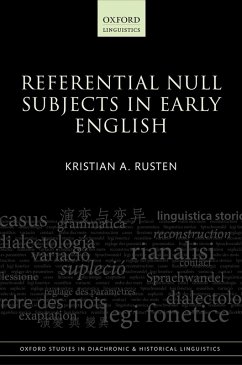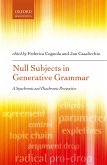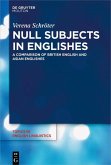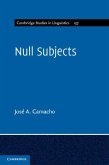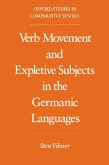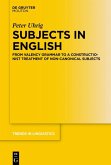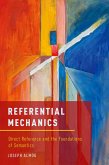This book offers a large-scale quantitative investigation of referential null subjects as they occur in Old, Middle, and Early Modern English. Using corpus linguistic methods, and drawing on five corpora of early English, it empirically examines the occurrence of subjectless finite clauses in more than 500 early English texts, spanning nearly 850 years. On the basis of this substantial data, Kristian A. Rusten re-evaluates previous conflicting claims concerning the occurrence and distribution of null subjects in Old English. He explores the question of whether the earliest stage of English can be considered a canonical or partial pro-drop language, and provides an empirical examination of the role played by central licensors of null subjects proposed in the theoretical literature. The predictions of two important pragmatic accounts of null arguments are also tested. Throughout, the book builds its arguments primarily by means of powerful statistical tools, including generalized fixed-effects and mixed-effects logistic regression modelling. The volume is the most comprehensive examination of null subjects in the history of English to date, and will be of interest to syntacticians, historical linguists, and those working in English and Germanic linguistics more widely.
Dieser Download kann aus rechtlichen Gründen nur mit Rechnungsadresse in A, B, BG, CY, CZ, D, DK, EW, E, FIN, F, GR, HR, H, IRL, I, LT, L, LR, M, NL, PL, P, R, S, SLO, SK ausgeliefert werden.

